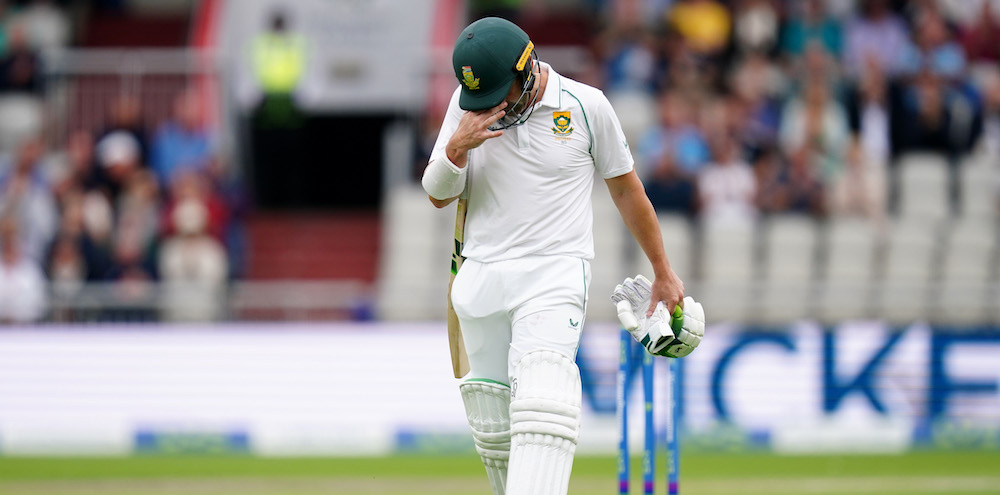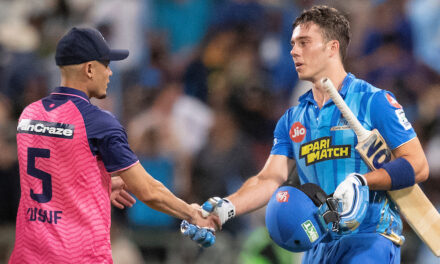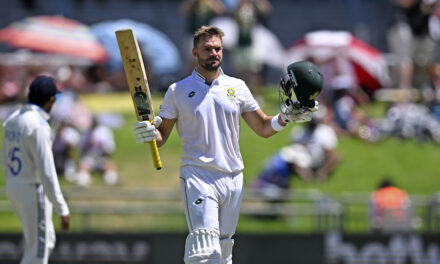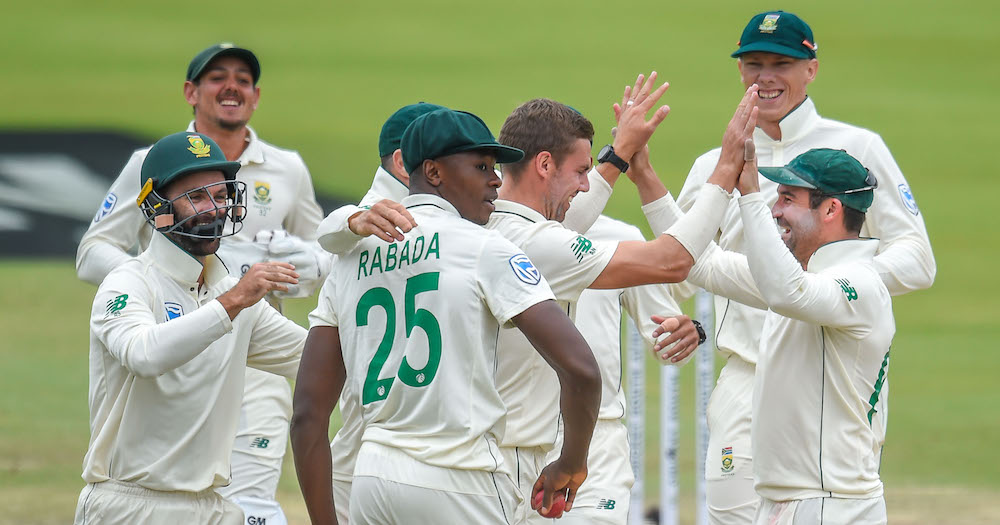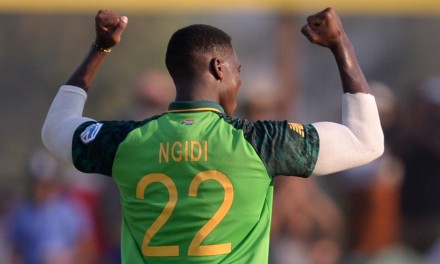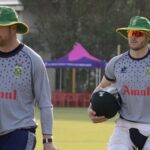A few tears formed in my eyes on Saturday morning. It wasn’t the passing of Queen Elizabeth that brought them there, nor was it the plunging minute’s silence at The Oval observed in her honour. It was Laura Wright’s rendition of Nkosi Sikelel’ iAfrika that cascaded over me and tugged at something deep inside my soul.
Wright’s a cappella interpretation of South Africa’s national anthem did something to me. It was mournful and stirring, befitting the occasion which would see her sing the first public performance of God Save the King at a live sports event. But I wasn’t thinking about King Charles or the British people. I was thinking of home and how homesickness can bite when I least expect it. Looking back, I suppose I was grieving the imminent demise of South African Test cricket.
This, of course, is the equivalent of painting a bullseye around an already shot arrow. Hindsight is a gift not afforded to those living in the present and I couldn’t have known for certain that the Proteas would crumble to a nine-wicket defeat in little more than two days in south London.
Perhaps I should have seen it coming. The warning signs were there. When Rassie van der Dussen’s broken finger and Aiden Markram’s poor form ruled them out of the deciding Test against England, the writing was on the wall. Dean Elgar aside, the rest of the top seven last week started the game with a combined 38 Tests between them. Khaya Zondo had yet to face a ball in Test cricket. Wiaan Mulder had a top score of 36. Keegan Petersen had never passed three figures and Kyle Verreynne and Sarel Erwee both averaged below 30.
Once Dean Elgar was bowled by Ollie Robinson off the ninth ball of the match, the contest was only heading one way. England’s overt aggression with the bat and South Africa’s sensational bowling, spearheaded by the generational talent of Marco Jansen, gave the impression that the Proteas might turn the tide, but that was a fool’s hope. Another abject batting display meant that for the fourth time in a row, England beat South Africa in a Test series.
Why was I overcome with emotion? The short answer is because I’m a sentimental git. Movies make me cry. Songs make me cry. I cried at several moments throughout my wedding and I cry when I say goodbye to loved ones at the airport.
But that doesn’t quite explain the salty droplets welling around my tear ducts. Like most South Africans, I appreciate the significance of international sports. I know how the Springbok was used as a dangerous weapon in the hands of the fascist apartheid government, and I know how it was used as a balm in the hands of Nelson Mandela after unification.
I understand how the champion athletes of our country succeed despite the numerous setbacks and hardships they endure (yes, even the privileged ones from elite schools who also have to contend with load shedding and the threat of violence. This isn’t a competition). I appreciate that sport does have the power to change the world, if only for a moment.
Ever since a cricket ball broke my nose the first time I faced one in a match, I’ve been enamoured with the sport. All I ever wanted was to be a Protea, to score runs and take wickets for my country. My slow hands and feet saw to that, but the flame burns on and scorches my fingertips when I write maudlin pieces such as this one. Yes, I’m a professional journalist and I’m paid to be impartial, but occasionally those same fires stir within me. Wright’s singing lit the tinder once again.
It is heartbreaking to think that the Proteas will not be back in England for a Test series across the next four years. Unless they qualify for the World Test Championship (WTC) final next year they won’t be back to play a red-ball game at all in that time. And instead of triumph and goodwill, we’re left with the lingering aftertaste of what might have been. It’s sour and unpleasant. It tastes like a missed opportunity. Like a golden chance squandered. Frankly, it sucks.
What can we do? Nothing. We’re as helpless as Ryan Rickelton against Stuart Broad from over the wicket. We’re as useless as Keshav Maharaj after his batters failed to reach 200 in their last four innings.
All we can do is wait. Wait for the next crop of superstars to emerge from four years in the international wilderness, hoping that the domestic structures can produce a few players capable of challenging the best in the world once again. We must wait as the next cycle of the Future Tours Programme reaches its conclusion, hoping that the WTC isn’t abandoned. We must wait and hope that Australia, India and England don’t forget about South Africa. We wait for better days.
I don’t know if we’ll get them. Perhaps that is why I shed a tear.

